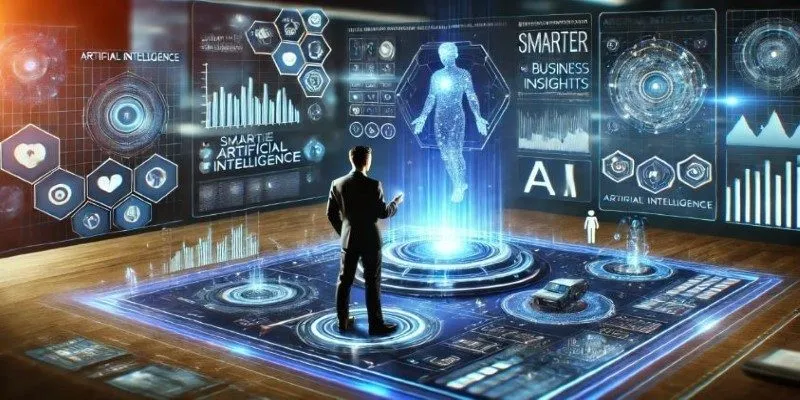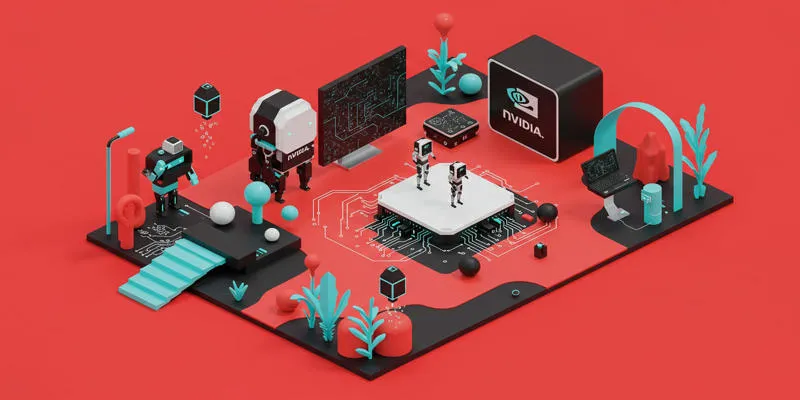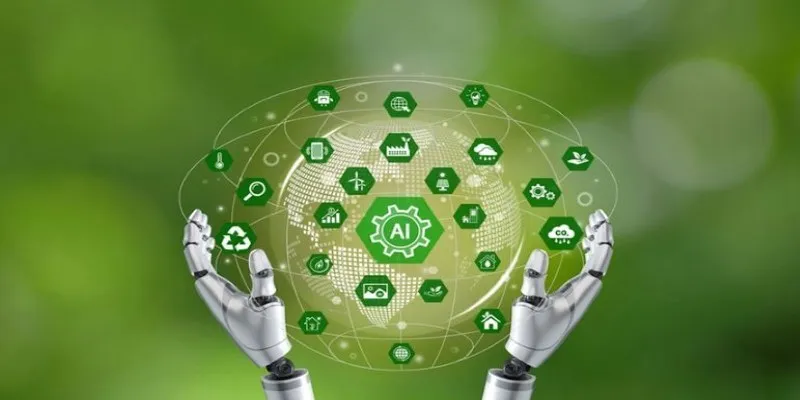Everyone is aware of the urgent need to address environmental issues affecting our planet, from climate change to pollution. The detrimental impacts of these challenges on nature, human health, and our future are undeniable. Fortunately, technology, often criticized for its environmental impact, can also play a crucial role in saving the planet. Yes, technology can be a part of the solution!
Artificial Intelligence (AI) has become ubiquitous in our modern world, present in our devices, homes, businesses, and vehicles. Increasingly, AI is being leveraged to tackle complex environmental problems, emerging as a potent tool in safeguarding our planet. Curious about how? This article explores five ways in which artificial intelligence can contribute to Earth conservation efforts. If you’re interested in preserving the environment, read on!

5 Ways Artificial Intelligence Can Help Save the Earth Here are five
impactful ways AI can aid in Earth conservation: ### 1. Using Electric
Cars Electric cars are gaining popularity for good reason. Conventional
diesel cars emit approximately 1,770 kilograms of carbon dioxide annually when
driven 15,000 kilometers. In contrast, electric vehicles significantly reduce
CO2 emissions, making them a more environmentally friendly choice. AI-enhanced
electric cars can operate more efficiently, optimize routes, and minimize time
spent on the road, further reducing pollution. Incorporating smart features
and AI technology into electric vehicles represents a significant step toward
a cleaner future. ### 2. Sorting Trash To Save the Environment Efficient
waste management is crucial for environmental protection. AI plays a key role
in waste segregation, exemplified by innovations like Bin-e, a smart bin that
utilizes AI and the Internet of Things to identify and sort recyclables
accurately. By distinguishing between different materials and automating the
sorting process, smart bins like Bin-e streamline recycling efforts, reducing
human error and promoting sustainability.  ### 3. The Fight
Against Poaching Illegal activities like bomb fishing pose a grave threat to
marine ecosystems. Scientists combat these practices using AI-powered sound
detection systems to monitor underwater sounds and detect illegal fishing
activities. By analyzing data collected through underwater microphones, AI
helps identify instances of illegal fishing and enables prompt intervention by
authorities. ### 4. Tracking Air Pollution with AI Air pollution remains a
significant global health concern, contributing to millions of premature
deaths annually. AI technology, such as that developed by engineers at Cornell
University, offers a novel approach to monitoring air quality. By synthesizing
various data sources through AI algorithms, this system provides detailed
models of air pollution dispersion, aiding city planners and health officials
in addressing air quality issues effectively. ### 5. Using AI to Reduce Food
Waste Food waste poses a significant environmental and economic challenge
globally. AI solutions like Winnow Vision assist in managing food waste by
identifying discarded items and quantifying their environmental and financial
impact. By raising awareness among chefs and kitchen staff about food wastage,
AI systems encourage better planning and resource utilization, leading to
reduced food waste and cost savings. ## Conclusion Artificial Intelligence is
more than just a technological trend; it is a valuable asset in our efforts to
protect the Earth. Through applications in smart transportation, waste
management, wildlife conservation, pollution control, and food sustainability,
AI demonstrates its potential to drive positive environmental change.
Embracing AI responsibly can pave the way to a healthier, more sustainable
future for our planet. The choices we make today will shape the future of our
environment, and leveraging AI for conservation purposes can lead us toward a
greener world.
### 3. The Fight
Against Poaching Illegal activities like bomb fishing pose a grave threat to
marine ecosystems. Scientists combat these practices using AI-powered sound
detection systems to monitor underwater sounds and detect illegal fishing
activities. By analyzing data collected through underwater microphones, AI
helps identify instances of illegal fishing and enables prompt intervention by
authorities. ### 4. Tracking Air Pollution with AI Air pollution remains a
significant global health concern, contributing to millions of premature
deaths annually. AI technology, such as that developed by engineers at Cornell
University, offers a novel approach to monitoring air quality. By synthesizing
various data sources through AI algorithms, this system provides detailed
models of air pollution dispersion, aiding city planners and health officials
in addressing air quality issues effectively. ### 5. Using AI to Reduce Food
Waste Food waste poses a significant environmental and economic challenge
globally. AI solutions like Winnow Vision assist in managing food waste by
identifying discarded items and quantifying their environmental and financial
impact. By raising awareness among chefs and kitchen staff about food wastage,
AI systems encourage better planning and resource utilization, leading to
reduced food waste and cost savings. ## Conclusion Artificial Intelligence is
more than just a technological trend; it is a valuable asset in our efforts to
protect the Earth. Through applications in smart transportation, waste
management, wildlife conservation, pollution control, and food sustainability,
AI demonstrates its potential to drive positive environmental change.
Embracing AI responsibly can pave the way to a healthier, more sustainable
future for our planet. The choices we make today will shape the future of our
environment, and leveraging AI for conservation purposes can lead us toward a
greener world.
 zfn9
zfn9























